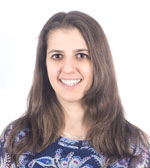
By Sabine Hutcheson, Director of Marketing & Head of Secondary Admissions at Geneva English School
Why does Drama play an important role in children’s education?
Amongst the creative arts that are taught in most schools, namely Music, Art & Design, and Drama, the latter often doesn’t feature formally on the curriculum or, more often, is undervalued and amalgamated with language learning. Drama is, however, a key discipline through which children develop personally and emotionally and hone the skills that will serve them throughout their lives as successful members of their community.
How does Drama fit in a school's curriculum?
Drama is often overlooked in schools, as reflected, for example, in its complete absence from the Swiss curriculum. At Geneva English School, there is a deliberate effort to afford the same consideration to Drama as to the other creative arts. From the Early Years Programme all the way to Secondary school, children are taught by a specialist teacher, in a bespoke drama studio. From storytelling to interpreting characters, to using body language to convey emotions, to verbally articulating complex ideas, skills explored in Drama are essential for the personal growth of young people. At GES, Drama spills over into enrichment and extra-curricular activities, giving students the opportunity to perform in plays and musicals several times in the year, including optional theatre training for 16-18 year olds who perform to their peers in Primary school.
Drama as a tool for personal development
Drama is an invaluable tool for developing confidence, communication skills, and effective social and professional interaction. It acts as practice for life itself - teaching how to conduct oneself successfully, understand emotions, and interact more constructively with others. It links perfectly to the study of language, syntax, tone and vocabulary.
In the Geneva region, in addition to choosing a school that delivers Drama as part of its curriculum, international families have the opportunity to enrol their children in English-speaking theatre groups that offer structured and wide-ranging programmes, such as Simply Theatre. Beyond traditional theatrical performance, children and teenagers have access to LAMDA examinations in acting and musical theatre. The former, training for which can also be held within schools such as GES, covers Speaking Verse and Prose, Reading for Performance, and Speaking in Public. In doing so, young people learn to communicate clearly, concisely and persuasively, and also build their confidence and self-esteem.
Cultural education through Drama
Drama is an opportunity to discover texts ranging from classical Shakespeare to more modern and quirkier plays, such as those by Alan Bennett. Plays are a window into the minds and experiences of the countries and periods for which they were created. In Geneva, there are few opportunities for anglophone children to discover live performances that are culturally representative of the English-speaking world. Theatre groups like GEDS and GAOS fill that gap beautifully and contribute to cultural education. GAOS goes one step further in extending the experience to include an annual pantomime, a quintessentially British style of performance that unites generations in celebrating humour, silliness and positive thinking.
The role that Drama plays in education is as rich and varied as the works to which it introduces children. As a school subject, it is the closest to real-life experience and it prepares young people for the infinitely complex situations in which they may one day find themselves, both in their personal and professional lives. Schools that value Drama as an essential part of the curriculum prepare their students more effectively for university, future careers and life.
Author bio
 Sabine Hutcheson is an education professional with over twenty-five years’ experience in teaching and leadership in schools in Switzerland, the UK and neighbouring France. Sabine has worked as a Teacher, Education Consultant, University and Careers Advisor and, in the past eight years, has held senior leadership positions in schools in Geneva. She is currently the Head of Secondary Admissions at Geneva English School.
Sabine Hutcheson is an education professional with over twenty-five years’ experience in teaching and leadership in schools in Switzerland, the UK and neighbouring France. Sabine has worked as a Teacher, Education Consultant, University and Careers Advisor and, in the past eight years, has held senior leadership positions in schools in Geneva. She is currently the Head of Secondary Admissions at Geneva English School.









